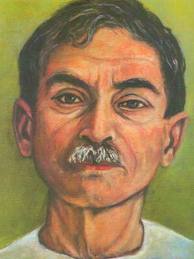In the novel Bhoot quoted in page=92.
Portrayal of Women in Premchands Stories A Critique
Munshi Premchand: Citations en anglais
He wrote many of his novels in Hindi on his avowed words, in page=90.
Portrayal of Women in Premchands Stories A Critique
In [age=11
THE PREMCHAND READER Selected Stories 1
In page=9
THE PREMCHAND READER Selected Stories 1
In page 10
THE PREMCHAND READER Selected Stories 1
When he was superintendent of the schools boarding house of the National School quoted in "Munshi Premchand: The Voice of Truth", page =1915.
“Nervous like a knife, he cuts clear through hypocrisy and falsehood.”
By Mulkraj Ananad on Premchand’s novel Godan, a novel of Peasant India” in [Premchand, Godan, http://books.google.com/books?id=9XcFkXR78BYC, 2002, Jaico Publishing House, 978-81-7224-219-0]
Above two quotes by Charu Gupta a critique writing in her Essay “Portrayal of Women In Premchand’s stories: A critique”
“If a woman does not get love in her life, it is better for her to die.”
In page =90
Portrayal of Women in Premchands Stories A Critique
Spoke in a lecture quoted in page=96
Portrayal of Women in Premchands Stories A Critique
“Does being a man make all things forgivable and being a woman all things unforgivable?”
Portrayal of Women in Premchands Stories A Critique
In his novel Ghar Jamai quoted in page= 92.
Portrayal of Women in Premchands Stories A Critique
After he published the Hindi novel in which the theme was about the oppressed and exploited Indian peasant quoted in [Anupa Lal, Munshi Premchand: The Voice of Truth, http://books.google.com/books?id=fTK-023B_wkC&pg=PA1900, 2002, Rupa, 978-81-7167-994-2, 1917]
In Munshi Premchand:Biography, 10 December 2013, Internet Media Data Base http://www.imdb.com/name/nm0695919/bio,
